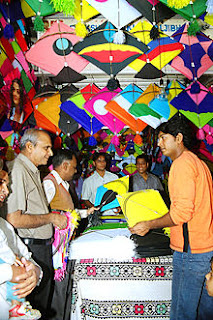King Abdullah Domestic Affairs
King of Saudi Arabia
Abdullah succeeded to the throne upon the death of his half-brother King Fahd. He was formally enthroned on August 3, 2005. At age 87, he is one of the world's oldest reigning monarchs. He has topped the 500 Most Influential Muslims list for two consecutive years in 2009 and 2010.
Domestic Affairs
King Abdullah has implemented many reform measures. He has re-shuffled the Ministry of Education's leadership in February 2009 by bringing in the King's pro-reform son-in-law as the new minister. He also at the same time appointed Nora bint Abdullah al-Fayez, a US-educated former teacher, was made deputy education minister in charge of a new department for female students.
He has done a top-to-bottom restructuring of the country's courts to introduce, among other things, review of judicial decisions and more professional training for Shari'a judges. He has been responsible for the creation of a new investment promotion agency to overhaul the once-convoluted process of starting a business in Saudi Arabia. He has created a regulatory body for capital markets. He has promoted the construction of the King Abdullah University for Science and Technology (the country's new flagship and controversially-coed institution for advanced scientific research). He has done a substantial budgetary investment in educating the workforce for future jobs. The Saudi government is also encouraging the development of non-hydrocarbon sectors in which the Kingdom has a comparative advantage, including mining, solar energy, and religious tourism. The Kingdom's 2010 budget reflects these priorities—about 25 percent is devoted to education alone—and amounts to a significant economic stimulus package.
In 2005, King Abdullah implemented a government scholarship program to send young Saudi men and women to Western universities for undergraduate and postgraduate studies. The program offers funds for tuition and living expenses up to four years. It is estimated that more than 70 thousand students have studied abroad in more than 25 countries. United States, England, and Australia are the top three destinations mostly aimed for by the young Saudi students. There are now more than 22,000 Saudi students studying in the US, exceeding pre-9/11 levels. Public health engagement has included breast cancer awareness and CDC cooperation to set up an advanced epidemic screening network that protected this year's 3 million Hajj pilgrims.
.
The response of King Abdullah's administration to homegrown terrorism has been a series of crackdowns including raids by security forces, arrests, torture and public beheadings. King Abdullah has vowed to fight terrorist ideologies within the country. He has made the protection of Saudi Arabia's critical infrastructure a top security priority.
King Abdullah's strategy against terrorism has been two-pronged: he has attacked the roots of the extremism that fed Al-Qaida through education and judicial reforms to weaken the influence of the most reactionary elements of Saudi Arabia's religious establishment. He is also promoting economic diversification. The King is keenly aware of the urgent need to make Saudi education more relevant to today's workplace and increase the role of women in the economy.
In light of the 2010–2011 Middle East and North Africa protests, Abdullah has laid down a $37-billion programme of new spending including new jobless benefits, education and housing subsidies, and debt write-offs. and a new sports channel. There was also a pledged to spend a total of $400bn by the end of 2014 to improve education, health care and the kingdom’s infrastructure.





Comments
Post a Comment